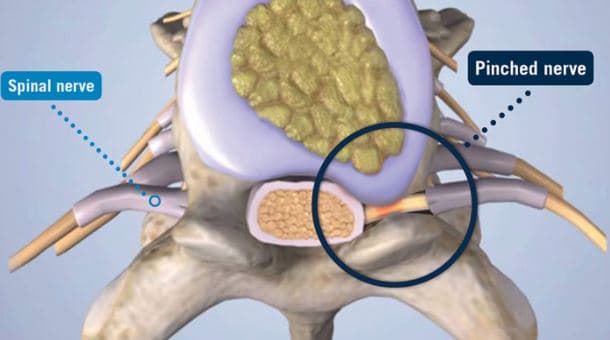We Are Pinched Nerve Experts
state of the art ultrasonic Pinched Nerve Treatment
What is Pinched Nerve ?
If you have ever experienced any pain in your neck or back, you’ve probably heard the term “pinched nerve.” In fact, if you have seen a doctor about neck or back pain that did not go away on its own after a few weeks, you’ve probably been diagnosed with a spinal pinched nerve. A pinched nerve is often the result of any type of degenerative spine condition that causes pain and other symptoms. Though this is a common occurrence for most people at some point in their lives, a pinched nerve can be difficult to treat because there are so many potential causes for nerve compression.
The best thing you can do when you start to develop pain that you believe comes from a pinched nerve is to schedule an appointment with your doctor. If diagnosed in time, you may be able to find pain relief with several weeks or months of conservative treatment. Take a moment to read below about what causes a pinched nerve and some warning signs you should be aware of to know whether or not you should see a doctor.
As part of the body’s nervous system, nerves branch out from the brain and spinal cord to carry instructions to every area of the body. Essentially, the nerves are like electrical wires that allow signals to travel from the brain to the spinal cord to the organs and extremities, and back again.
Nerves within the brain and spinal cord are part of the central nervous system, while nerves that run from the spine to other areas of the body are called peripheral nerves. The peripheral nerves originate as nerve roots that exit the spinal cord and then branch off to spread throughout the body. The nerves that travel to muscles allow the muscles to move. Nerves also pass to the skin, providing the ability to feel.

What Are The Causes Of Pinched Nerve?
A pinched nerve is a nerve under pressure. This pressure often comes from surrounding bone or soft tissues. A nerve under enough pressure will lose its ability to carry accurate signals, and its wayward signals can cause a variety of sensations in the body. For example, when a nerve is pinched or compressed, it can trigger the nerve to falsely signal pain. The compression also can limit the nerve’s ability to control the muscles it serves.
One of the most common places for a pinched nerve to occur is within the spine. The vertebral column surrounds nerve roots that innervate areas throughout the body, controlling muscle movements and sensations. These nerve roots are especially vulnerable to being pinched within the tightly packed spinal canal.
Am I the right patient for Pinched Nerve Treatment?
If you have pinched nerve, call us about the SonoSpine Procedure